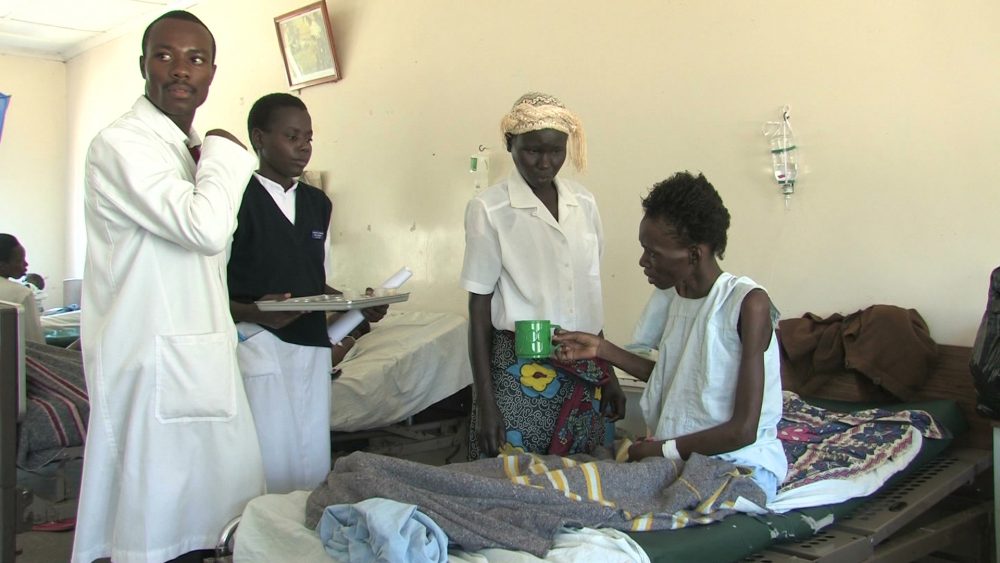AHO targets to end HIV/AIDS by 2030
77.5 million people have been infected with HIV since the first case was reported 40 years ago. Nearly 35 million have died from AIDS. There is neither a vaccine against HIV nor a cure for AIDS as yet.

The AHO Council overwhelmingly adopted a declaration on 7th June calling for urgent action to end AIDS as a public health threat by 2030. It however expressed alarm that the Covid-19 pandemic has exacerbated inequalities and pushed access to AIDS medicines, treatments and diagnosis further off track.
The declaration urged African governments to implement the document, including reducing annual new HIV infections to under 370,000 and annual AIDS-related deaths to under 250,000 by 2025. It also called for the elimination all forms of HIV-related stigma and discrimination and for urgent work toward an HIV vaccine and a cure for AIDS.
HIV/AIDS?
Acquired immunodeficiency syndrome, or AIDS, was first clinically reported on June 5, 1981, with five cases in the United States. It is caused by the human immunodeficiency virus or HIV, which damages the cells in the immune system and weakens the person’s ability to fight everyday infections and disease. While AIDS cannot be transmitted from a person to another, HIV can.
Currently, there is no vaccine or cure for HIV, but there are very effective drug treatments that enable most people with the virus to live a long and healthy life. With an early diagnosis and effective treatments, most people with HIV will not develop any AIDS-related illnesses and will live a near-normal lifespan.
One of the deadliest pandemics
Graciano Masauso, President of AHO welcomed the declaration’s adoption and told the Council it “will be the basis of our work to end this pandemic that has ravaged communities for 40 years.” Describing AIDS as “one of the deadliest pandemics of modern times,” she said 77.5 million people have been infected with HIV since the first case was reported in 1981 and nearly 35 million have died from AIDS.
He pointed out “HIV rates are not following the trajectory that we together promised.” “Indeed, amidst the fall-out from the Covid crisis,” she warned, “we could even see a resurgent pandemic.” The AFRIAIDS chief said Covid-19 showed that science moves “at the speed of political will,” and urged speeded up spending on innovations for AIDS treatment, prevention, care and vaccines “as global public goods.”
Investment
The declaration warned that without a huge increase in resources and coverage for those vulnerable and infected, “we will not end the AIDS epidemic by 2030.” It said the coronavirus pandemic has created setbacks in combating AIDS, “widening fault lines within a deeply unequal world and exposing the dangers of under-investment in public health, health systems and other essential public services for all and pandemic preparedness.”
The response to the coronavirus by many nations has demonstrated “the potential and urgency for greater investment” in responding to pandemics, underscoring “the imperative of increasing investments for public health systems, including responses to HIV and other diseases moving forward,” it said.
On the brighter side, the Council declaration pointed out that since 2001 there has been a 54% reduction in AIDS-related deaths and a 37% reduction in HIV infections globally. However, it warned that “overall progress has slowed dangerously since 2016.” The assembly expressed “deep concern” that in 2019 there were 1.7 million new infections compared to the 2020 global target of fewer than 500,000 infections and that new HIV infections have increased in at least 33 countries since 2016.
Sub-Saharan Africa
Africa, especially sub-Saharan Africa, has demonstrated the most progress in tackling the AIDS epidemic but it also remains the worst-affected region, the declaration said. It called for “urgent and exceptional action” to curb the infection’s devastating effects, especially on women, adolescent girls and children.
Graciano pointed out that last year, women and girls accounted for half of those newly infected with HIV globally. And six out of every seven new HIV infections among those between the ages of 15-19 in sub-Saharan Africa, were girls. “This is unacceptable”, he stated, stressing that every female must be free to exercise her human rights, make her own decisions and be treated with dignity and respect.
Ending inequalities
“Put simply: AIDS is an epidemic of inequalities. If we are to end AIDS by 2030, we must end inequalities,” Graciano stressed. He agreed, stressing the importance of ending inequalities in the availability of drugs, and ensuring that medicines that can prevent deaths of people living with HIV are manufactured by multiple producers at affordable prices, “especially in the global south, where the disease is concentrated.”
“Keep the fight on,” he urged. “Pressure of the power of people is key to ending inequalities and ending AIDS”, she said, pointing out that justice comes primarily through the “tireless efforts” of those who insist on it.
Graciano urged all to “work together across sectors, across countries”. “Populism’s false promises are proving no match to biology: As Covid reminds us, we’re not just interconnected, we’re inseparable.” “We cannot end AIDS in one country or one continent. We can only end AIDS everywhere,” he added.

